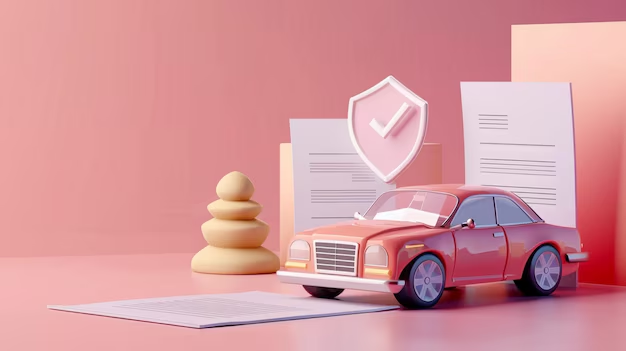
Can You Pay Car Insurance Early
Can You Pay Car Insurance Early
Can someone tell me why, when I am late, I get stuck behind the slowest drivers in the world? It’s as if the universe knows. Anyway, after a few deep breaths and a coffee break I was re-connecting with how important it is to stay ahead of the practical stuff — like paying my car insurance early!
Should you pay for your insurance in monthly instalments or pay for it annually? Both have their merits and downsides, to be honest. Here we discuss whether the long-term cost of paying monthly outweighs the benefits of potentially making the price of car insurance more manageable in the short term
Is It Worth Getting An Annual Car Insurance Policy
The least expensive — and simplest — way to pay your car insurance premium is in full, once a year. That’s because you won’t need to worry about interest. It also means you won’t have to worry about it again for a year.
Considering the typical cost of comprehensive automobile insurance is £776, saving on your insurance always sounds great. And some people, including young drivers, will pay significantly more.
Most insurance providers will allow you to pay in monthly instalments if you are unable to pay all at once. This has the benefit of making payments more digestible. The downside here is that monthly payments accrue interest.
My Car Insurance By Credit Card
Certain car insurance companies allow you to pay for your car insurance using a credit card. This could be a great tool to use to pay a lump sum payment as you won’t have to pay interest to the insurance provider. But it only makes financial sense if your credit card has an interest rate lower than what your insurance company is charging you.
If your credit card has a 0% interest grace period and you can settle the full amount during that period of time, you won’t pay any interest whatsoever.
But if you don’t pay off the debt during the interest-free time frame, or miss a payment, the penalties will erase any potential savings.
If car insurance is being renewed, it will send you a notice for renewal between 28 and 21 days before the renewal date to email or post. Some providers allow earlier reminder settings for this.

Paying For Car Insurance Every Six Months
A few insurance companies allow you to purchase six-month auto insurance policies. This means that you can shop around more often and potentially snag a better deal. It could be used to help you fund your policy up front by dividing an annual price into two parts.
There are shorter term policies too, for up to 28 days for very occasional drivers. There’s also pay-as-you-go car insurance, which could be based on the number of miles you drive or the amount of time you drive.
These are not options for everyone and not every insurance provider will have them but they might be worth exploring.
At present, Compare the Market doesn’t compare six-month car insurance policies, but we can compare temporary car insurance, which can cover you for anywhere from an hour to 28 days.
How Insurance Works
We consider several factors to assess the cost of your insurance. Some of these things are explicitly related to you, while others have to do with the world around you and what’s going on with the insurance market.
Everyone who buys insurance is paying into a central pot and, if you make a claim, we pay it out of that pot. When the numbers and costs of claims rise, the pot has to stretch further, which means prices can go up.
But no matter what is going on, we continually assess how we calculate the cost of car insurance to ensure that we are providing you with a competitive price.
Your Car Insurance Renewal
We’ll send you a renewal invitation shortly before your current policy expires. It will display two prices — last year’s cost and a figure for maintaining cover for another 12 months if no alterations are to be made to the existing cover.
If you are already a customer with us, the price you pay to renew your cover will be the same or lower than the price for a new customer equivalent to you.
Where the particular cover you hold with us is no longer available to new customers, we’ll compare your renewal price against the new customer price of the most similar policy.
Why Choose An Annual Car Insurance Policy?
On average, you should save more money by paying your insurance on an annual basis rather than a monthly basis over a year.
That’s because when you pay monthly, you borrow money from your insurance company. You’re basically distributing the total cost of your policy across 12 months.
This “loan” typically accrues both interest and service charges, which are tacked onto the total cost of your policy. Some companies charge finance fees if you choose to pay monthly, but you can avoid these fees by paying annually, which will lower the overall cost of your insurance over time.
Here’s an example:
For example, the cost of a car insurance policy is £1,200 a year. There’s a choice of monthly payments, but the insurance company puts an interest rate on it. This brings the total cost to about £1450 for the year. So paying monthly will cost you more than paying annually, specifically £250 more over 12 months.
Why Choose A Monthly Car Insurance Policy?
Although they can ultimately cost you more over time, monthly insurance payments also give you more flexibility, which can be beneficial if you’re trying to keep your budget on track throughout the year.
Your car insurance cost is divided into smaller pieces, making it a good option if you cannot make a bigger payment at once.
Here’s an example:
Emma is a university student and works part-time. Her budget is tight, and she can’t afford the annual renewal quote from her car insurer. She uses the monthly payment option instead. She can spread the cost out over a year this way and doesn’t have to worry about a large and unexpected bill that month, while getting the cover needed to drive.
How Can You Lower Your Car Insurance Costs?
However, there are some actions you can take to save on your car insurance:
Opt for a higher voluntary excess – Some insurance companies will permit you to select a higher voluntary excess that can cut the cost of your regular insurance payments. Just make sure you have the ability to pay out if a claim needs to be made.
Picking the right car, an inexpensive car with a smaller engine and good security features, can mean a lower insurance group and lower insurance costs.
Build your no claims bonus. This shows insurers that you are a safe driver and helps to reduce the amount of money you pay for your cover.
Opt for a telematics policy – A telematics insurance policy will help you lower your costs if you have the option to do so by driving safely.
Conclusion
The first step in determining if you want to pay your car insurance every month or annually, is to examine your financial situation, budget, and type of cover you need.
Annual payments are usually less expensive in the long term, but the monthly fee gives you more flexibility, letting you budget more effectively. It all depends on what is right for you.”

FAQ
A typical car insurance policy term is one year. It is up to you if you want to pay that year upfront in full or whether you pay in instalments or not.
If you do choose to pay for it monthly, your first car insurance payment is usually larger than the rest, since it’s the remaining balance plus interest if you’re paying by direct debit each month for the rest of the year.
Naturally, the particulars will differ from insurer to insurer, so be sure to read your policy documents or consult your insurer directly, to make sure you understand how your payments work.
This is a difficult question to answer, since this will be based on each policyholder’s own priorities and financial circumstance. But paying your car insurance premium once a year in full could be the cheapest way to go. This is simply because you won’t be charged interest on the amount of your premium. Paying your car insurance premiums annually means you only need to pay once, which also means you do not have to worry about your coverage again until your go-around for renewing your coverage.
If you want to cancel your policy, or just switch car insurance providers to find a better deal while you are within your active policy term, make sure you contact your insurance provider and they will guide you through the process.

